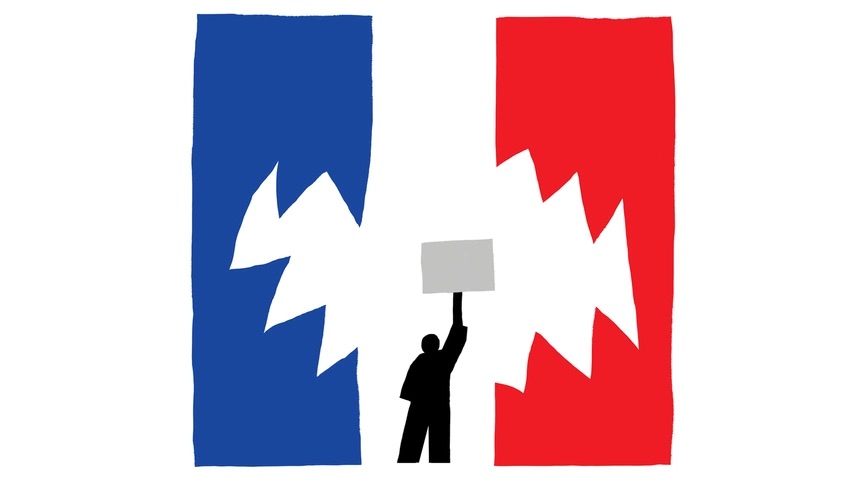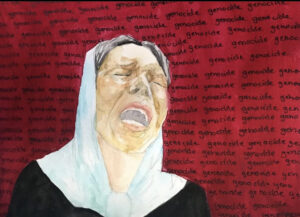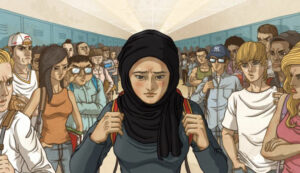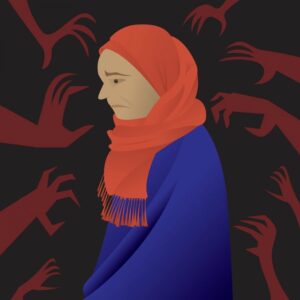
Breaking the cycle of riots and poverty in the Banlieues
Banlieues, or the suburbs of French cities, have been mired in discrimination, poverty, and inequality for decades. Even a colossal drive of 60 billion euros to improve facilities and infrastructure in the banlieues has failed to erase the racial discrimination and unemployment leading to generational poverty.
The gap between them and other parts of the country widens yearly. Such neighborhoods, therefore, have become prone to riots and gang wars, further alienating them from the rest of the country and making them a blight. The cuts in public services certainly did not help their cause.
It conveyed that the residents could not avail of the most basic facilities such as schooling and transport, further contributing to concerns of isolation from the rest of the country.
Recently, riots broke out over the death of Nahel M., a man killed by the police when he failed to comply with an order to stop his car in Nanterre, Paris. This created a blaze of riots across banlieues in France, voicing anger over police brutality and the state of policing. It’s among the dozens of incidents that make racial profiling and discrimination a genuine prospect. Think tanks and various initiatives have been created to uplift the ‘Quartiers prioritaires’ (priority neighborhoods) among France’s poorest areas. Still, according to the Institut Montaigne, the unemployment rates of the residents in these quarters are about three times as likely compared to other cities. Think tank’s surveys are deciphering that the probability of improving the bleak conditions in these neighborhoods seems nearly impossible for the authorities.
Though there have been success stories such as Kylian Mbappé, there remain to be a disproportionate number of residents that still seek to find that one colossal break to move out of the banlieues to a better sociable locality or risk remaining fettered to the never-ending cycle of oppression and discrimination.
Ban on your freedom of choice? Blame Secularism.
Finally, debating on the cultural wars would be remiss without discussing the ban on specific types of clothing, and in this case, it is burkinis. The burkinis cover the head, leaving only the hands, feet, and face visible. Even though burkinis were initially designed to be used primarily by Muslim women to facilitate their integration into public places, they can even be worn by other women that seek personal comfort in controlling their wardrobe exposure.
Women were banned from wearing burkinis to beaches and swimming pools, with the authorities claiming that wearing burkinis violated the law prohibiting the wearing of burkinis as they were categorized as religious symbols, with offenders having to pay a €38 fine for violation. Though the concerns over burkini-clad women were barely passable, owing to the circumstantial unrest propelled by two nation spanning, large-scale attacks it certainly does not justify the continuation of an absurd law the likes of this in these times. The freedom to choose what to wear should be advocated as long as it does not hurt sentiments or pose a genuine threat to the public. Moreover, this has been coupled with a strong sense of feminism, and the movement to lift the ban on wearing burkinis is gaining traction even after the ban has been upheld.
There are also other issues, such as the French Football Federation banning female footballers from wearing hijabs during matches even when FIFA has no such rules, and also France having a ban on full-face veils since 2010. These rules are being defended by France’s laïcité (secularism) laws that allow them to ban religious symbols in public places. One can accuse France of designing laws that disproportionately target the Muslim population, leading to further strife between the minority groups and the government. The authorities must utilize the claims of secularism in a very prudent manner. They must not be used under the pretenses of issuing laws to curb Muslims’ freedom of choice and expression, as this hurts not only the immigrant populace but also French Muslims. The least desirable outcome would be for these small yet numerous issues to accumulate into another widespread reason for a civil war slowly.
In conclusion, I genuinely believe that embracing the diversity the minority groups carry and allowing them to exhibit and explore their beliefs and values in a cultural niche that acts as a safe space, a religious complex, for example, or even a shared space in buildings or localities where people of various religions and beliefs can practice; would go a long way towards bridging the gap between the minorities and the government. It sure is going to take a lot of time. Still, I believe that unifying the public under a shared dream of a utopian society to which they must strive while also making efforts to make sure that each person is treated equally, with due respect, and is represented; will set France on a long and arduous path towards healing, but it will heal completely and be the glorious country we envision it to be. Allez les bleus!!
Written by Adrian Rex Coutinho for MTTN
Edited by Siddhant Tomar for MTTN
Featured Image by Jawad Morad
Images by Dongyun Lee, Trevor Lunde and FahimsWrld



Leave a Reply
You must be logged in to post a comment.